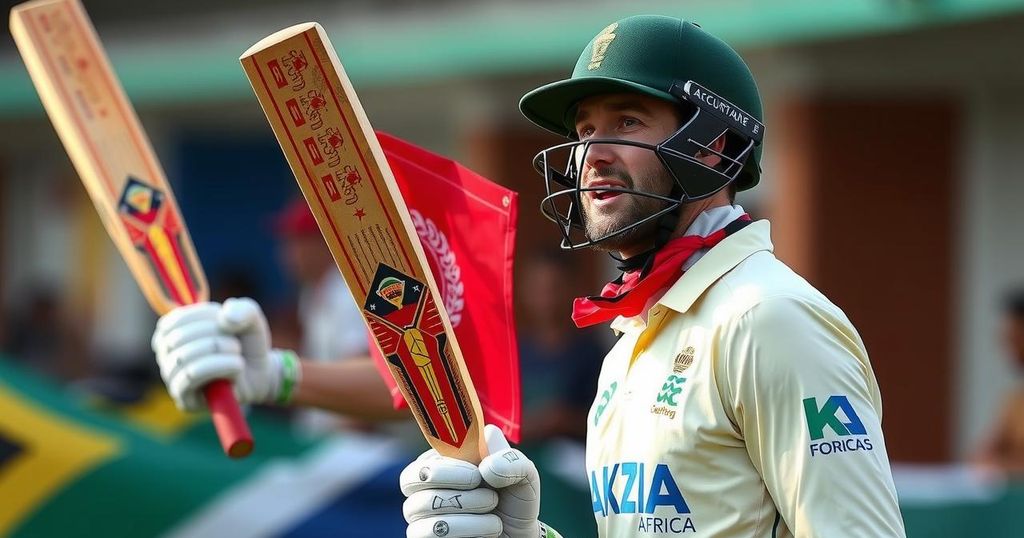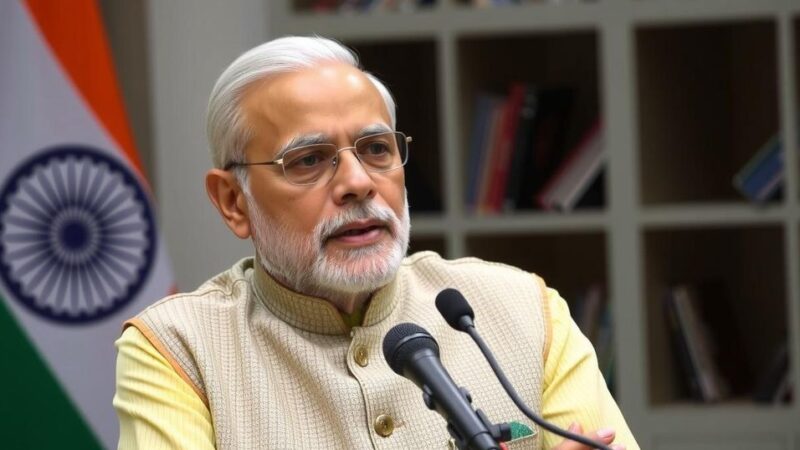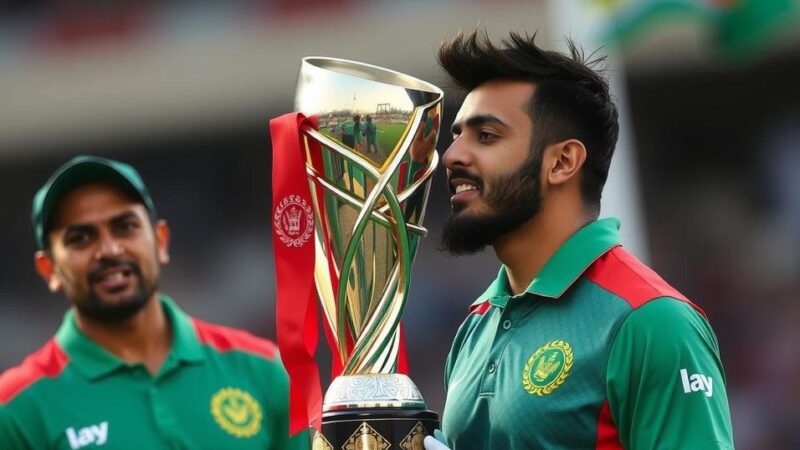South Africa’s Sports Minister Gayton McKenzie supports calls to boycott Afghanistan in cricket following the Taliban’s restrictions on women’s rights. He urges cricket authorities to reconsider matches against Afghanistan, drawing parallels to apartheid. His stance is echoed by British politicians who also advocate for a boycott, prompting discussions on the moral implications of sporting relations with nations that violate human rights.
South Africa’s Sports Minister, Gayton McKenzie, has expressed his support for the growing movement to boycott Afghanistan in the forthcoming Champions Trophy. This development aligns with calls from British politicians urging England not to engage in matches against Afghanistan, a response to the significant restrictions imposed by the Taliban on women’s rights since they regained power in August 2021. McKenzie has challenged Cricket South Africa (CSA) and the International Cricket Council (ICC) to reassess their stance on competing against Afghanistan, highlighting the importance of signaling support for women in sports globally.
While McKenzie has made a personal declaration against playing Afghanistan, stating that he would prefer not to compete, he acknowledged that the final decision should not rest solely with him as the Sports Minister. He drew parallels between his experiences during apartheid and the current situation faced by Afghan women, emphasizing that “it would be hypocritical and immoral to look the other way today when the same is being done toward women anywhere in the world.”
The call for a boycott has gained traction with support from notable British politicians, including former cabinet minister Peter Hain, who has written to CSA advocating for the prohibition of Afghanistan from women’s and girls’ cricket. Over 160 British politicians have signed a letter addressed to the England and Wales Cricket Board (ECB), asking for reconsideration of England’s upcoming fixture against Afghanistan. In response, ECB CEO Richard Gould has underscored the need for member nations to adopt a unified stance regarding Afghanistan’s participation in international cricket.
Australia also echoes these sentiments, having initially postponed a men’s T20 series against Afghanistan due to concerns about deteriorating human rights conditions under the Taliban. Nonetheless, Australia’s national team proceeded to play against Afghanistan at the ICC ODI World Cup in India and the T20 World Cup earlier this year.
The issue underscores the balancing act faced by sporting bodies between upholding the spirit of competition and addressing pressing social justice concerns. As global scrutiny intensifies, the decisions rendered by cricketing authorities may reflect broader societal values and commitments to gender equality.
This situation exemplifies the intersection of sports and politics, showcasing how athletic competition can provoke significant geopolitical conversation, particularly concerning human rights violations.
In the wake of the Taliban’s resurgence in Afghanistan in August 2021, the international community has increasingly scrutinized the government’s policies, particularly those impacting women’s rights. The prohibitions placed on women’s access to sports and education have ignited discussions among global sports authorities about the implications of engaging with Afghanistan in international sports events. The ongoing discourse echoes historical parallels drawn by figures like Gayton McKenzie, who link contemporary injustices to those experienced during South Africa’s apartheid era.
The growing calls for a boycott of Afghanistan in cricket highlight a crucial intersection of sports and advocacy for women’s rights. With significant support from leaders in South Africa and the UK, the pressure mounts on cricketing bodies to reassess their positions in light of ongoing human rights abuses. As the global sporting community navigates these complex issues, the decisions made will resonate beyond the cricket field, impacting perceptions of inclusivity and equality in sports.
Original Source: www.newsbytesapp.com







